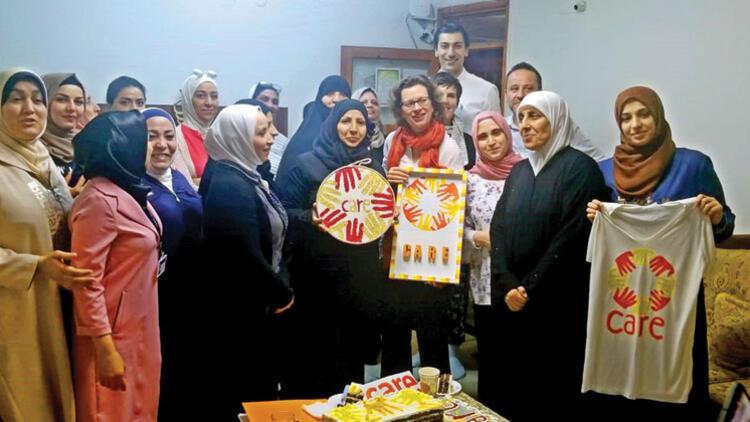
Hundreds of Syrian and Turkish women living in Turkey’s southeast have launched their own businesses thanks to a microloans program run by the Turkish Foundation for Waste Reduction (TİSVA) and Care International.
As part of the project, a total of 788 women - 589 Syrians and 199 Turks - living in Gaziantep, Hatay, Kilis and Şanlıurfa have received microcredits of 500 Turkish Liras ($88.4) to 1,500 liras ($265) to launch businesses at home. The six-month project has provided a total 860,000 liras ($152,074) of credits to the women so far.
Michelle Nunn, president and CEO of CARE USA who recently visited the Turkish cities where large numbers of Syrian migrants reside, told daily Hürriyet that Turkey has shouldered a major part of the international community’s burden in the Syrian crisis.
Nunn said that as a result of their cooperation with TİSVA, they have been supporting the Syrian and Turkish women living in Gaziantep, Hatay, Kilis and Şanlıurfa with the Grameen model, which received the 2006 Nobel Peace Prize.
Nunn stated that the economic and social change in the lives of women using microloans is promising.
“Thanks to the project, women become economically independent by doing income-generating activities,” she said.
“Syrian women are trying to start their own businesses with small loans. There are those who make and sell jam, market their own beauty products, turn a room into a hairdresser’s shop, make tailoring, and sell local home-cooked food. This project will provide solidarity between Syrian and Turkish women and improve their self-confidence and economic decision-making skills. I visited women in Şanlıurfa using microloans, and I found that those women were very happy,” she added.
Stating that the Syrian and Turkish women came together each week within the scope of the project, Nunn said: “This project also plays an active role in ensuring social cohesion by bringing together Turkish women and Syrian refugee women in the host society.”
TİSVA Trustees Chairman Prof. Aziz Akgül said the project aims to reach 900 women by the end of September, 60 percent of whom will be Syrian migrants.
“Our assessment with CARE is very positive,” he said.
“During their meetings with the Interior Ministry, they stated that they would like to continue their activities in cities such as Mardin, Istanbul and Adana. If the pilot project we have started is successful, we can continue the project in these provinces after the evaluations made by the government,” he added.
Within the scope of the project, the weekly microloan return rate is 100 percent, and the project is planned to continue next year, Akgül said.